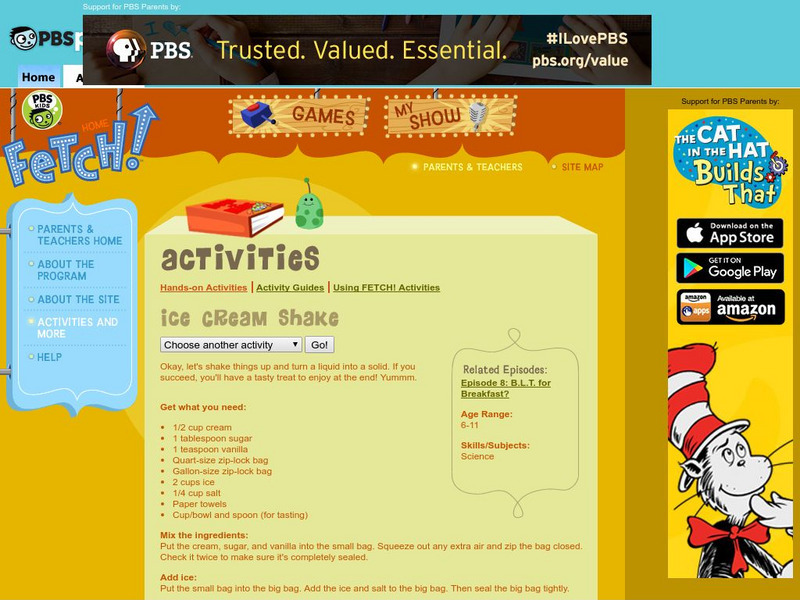University of Waikato
Melting Glacial Ice
There are many factors that affect how fast the glaciers are melting. A lab investigation has learners examine how the surrounding water affect the rate glaciers melt. They collect data from two samples of ice to determine how quickly...
Resources for Educators
Fractions of Fun
Reinforce concepts and encourage learner engagement with a collection of math games, science experiments, and cross curricular activities. In one fun resource, learners sort objects, keep a diary of everyday fractions, play a game using...
Teach Engineering
All Fats Are Not Created Equal
Apply robotics to connect physical properties to chemical properties. Future engineers use robots to determine the melting points of various fats and oils. The robots can do this by measuring the translucency of the fats as they heat up.
Curated OER
Will The Ice Melt and Overflow?
Students observe what happens when ice in a glass of water starts to melt. In this ice lesson plan, students see that the ice does not make the water overflow, it simply occupies the space it did in frozen form.
DiscoverE
Ice Cream Special
We all scream for ice cream! Individuals create home-made ice cream in the classroom. This is a delicious way to show a real-world application of the freezing point depression to your class.
Teach Engineering
Concentrate This! Sugar or Salt...
Heat up your lessons on boiling points. The resource provides a three-part activity: first, groups find the boiling point of solutions; second, they create boiling point curves for salt and sugar solutions; and third, they mix a solution...
Resources for Educators
Math & Science Connection
Whether you're using a collection of Dr. Seuss books to teach basic math skills like counting, adding, and subtracting, or exploring the different states of matter by melting a crayon with a hairdryer, a series...
Exploratorium
Diamagnetism
If you are attracted to activities dealing with diamagnetism, here is a rare find that you will appreciate. With a neodymium magnet and a few common materials, move a pair of juicy grapes without touching them. Though the fruit is...
TeachEngineering
Teach Engineering: All Fat Is Not Created Equally!
Students learn that fats found in the foods we eat are not all the same; they discover that physical properties of materials are related to their chemical structures. Provided with several samples of commonly used fats with different...
Texas Instruments
Texas Instruments: Freezing and Melting of Water
Freezing temperature, the temperature at which a substance turns from liquid to solid, and melting temperature, the temperature at which a substance turns from a solid to a liquid, are characteristic physical properties. In this...
University of Maryland
Lowering the Freezing Point of Water Using Salt
A page from the University of Maryland Physics Lecture Demonstration Facility. Provides directions for a teacher demonstration of the effect of an ionic solute upon the freezing point of water. Shows apparatus and set-up; provides...
Other
Elmhurst College: Virtual Chembook: What Are Physical Properties and Changes?
Brief descriptions of physical properties, physical changes, and the process of sublimation. The three states of matter, melting point, and boiling point are described. There is one link on the page, which leads to an explanation of...
Texas Instruments
Texas Instruments: How Low Can You Go?
In this activity, Students can use an EasyTemp temperature probe to determine the normal melting temperature of ice. They will then study how the addition of salt to the melting ice affects its melting temperature. They will finally...
Texas Instruments
Texas Instruments: Heat of Fusion
In this activity, students can use a calorimeter to measure the amount of heat needed to melt ice and determine the heat of fusion for ice. EasyData is needed for this activity.
Science Education Resource Center at Carleton College
Serc: Physical and Chemical Properties of Water
In this lesson students will understand the difference between chemical and physical properties by studying the properties of water. Students will also understand how to perform the different laboratory techniques that go along with the...
Educaplus (Jesús Peñas Cano)
Educaplus: Alcanos [In Spanisn]
Observe the melting points and boiling points of the first 10 linear alkanes.
University of Maryland
University of Maryland: Regelation: Ice Under Pressure
A page from the University of Maryland Physics Lecture Demonstration Facility. Provides directions for a teacher demonstration on the phenomenon of regelation. Shows apparatus and set-up; provides suggestions. Easily adaptable as a...
PBS
Pbs Teachers: Ice Cream Shake
Investigate states of matter while making ice cream. Explore how to turn a liquid into a solid by removing heat energy.
Other popular searches
- Boiling Point Melting Point
- Freezing Melting Point
- Melting Point Lab
- Melting Point Pure
- Boiling Point, Melting Point
- Ice Melting Point
- Freezing and Melting Points
- The Melting Point
- Melting Point Pure Mix

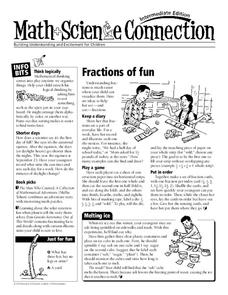






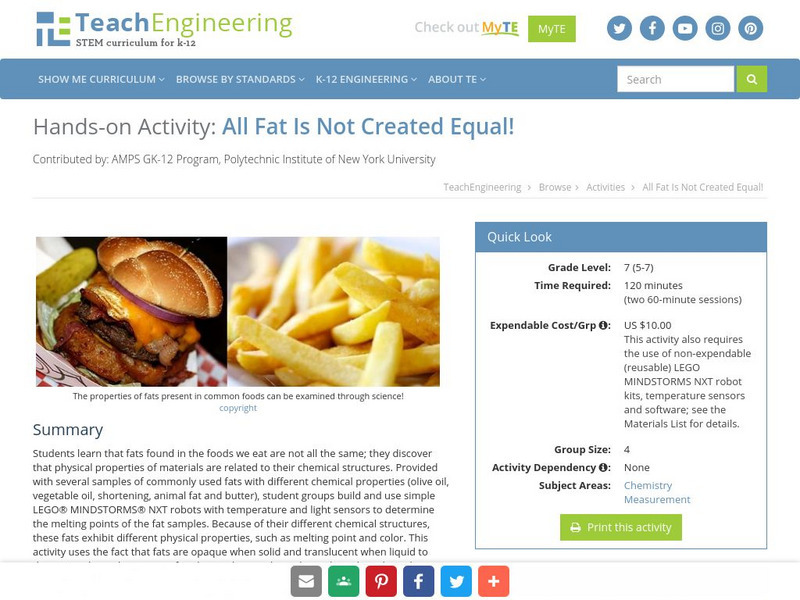
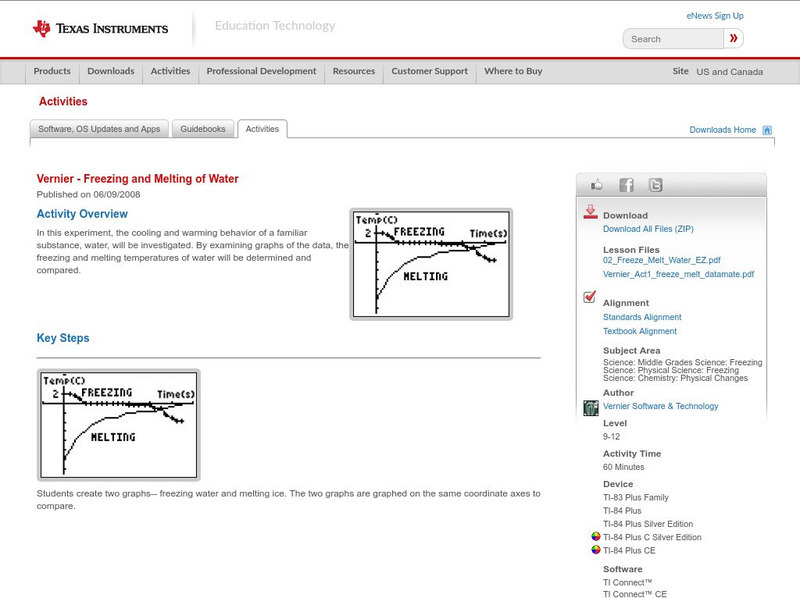
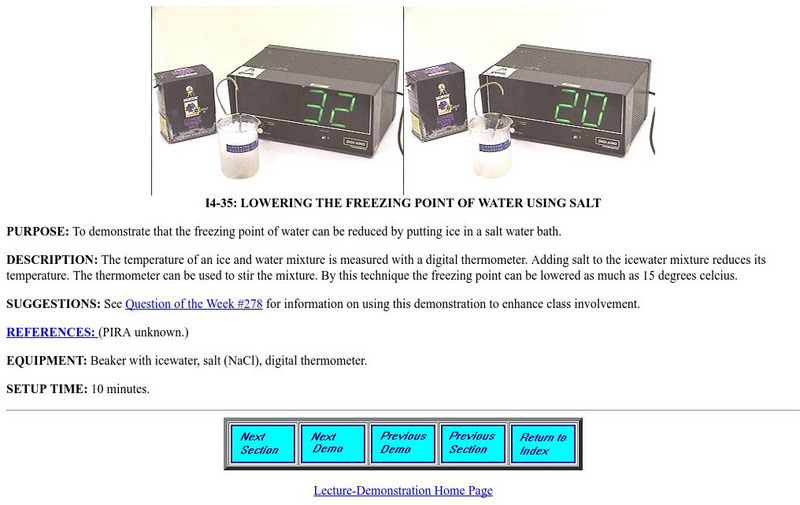
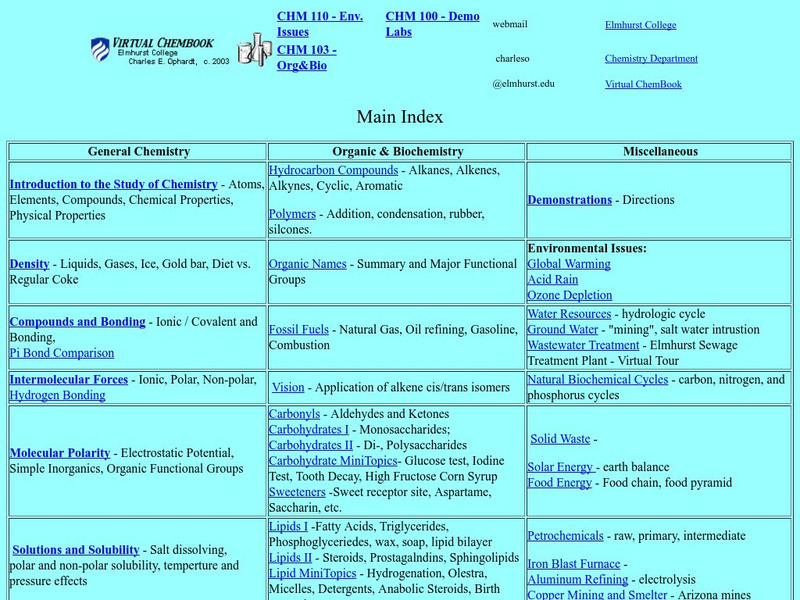

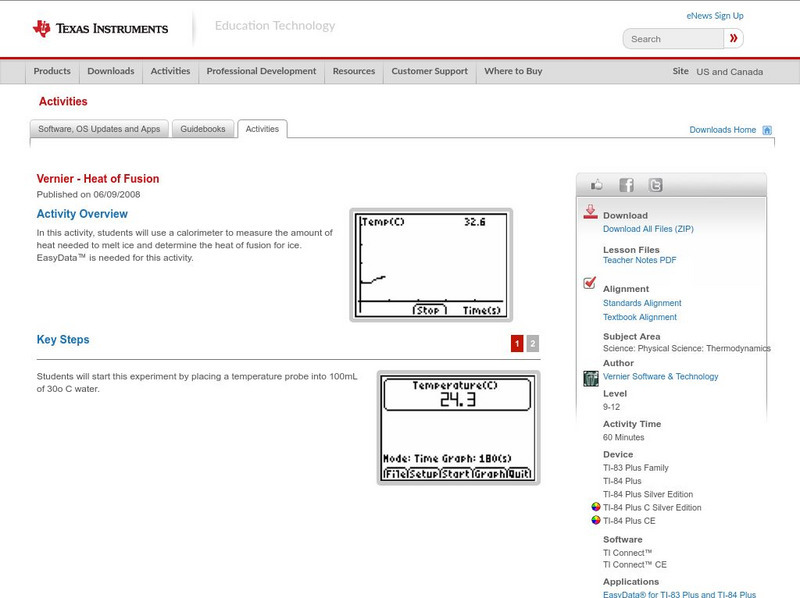

![Educaplus: Alcanos [In Spanisn] Activity Educaplus: Alcanos [In Spanisn] Activity](https://content.lessonplanet.com/knovation/original/120238-8cc7c7846c36bd2f09e5090800364947.jpg?1661810231)

